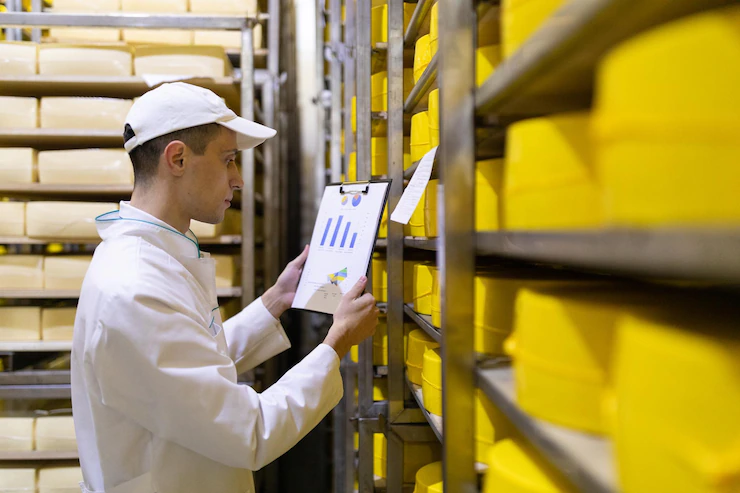Supply chain management in agroprocessing plays a crucial role in ensuring the smooth flow of agricultural products from the farm to the end consumer. It involves coordinating and optimizing various activities such as sourcing, production, storage, transportation, and distribution of agricultural commodities and processed products.
Here are some key considerations for navigating supply chain management in agroprocessing:
- Supplier Selection: Choose reliable and quality-focused suppliers for raw materials, ensuring they meet the required standards and can consistently deliver products in the desired quantities. Consider factors such as price, quality, reliability, and the supplier’s ability to meet your specific requirements.
- Inventory Management: Implement effective inventory management practices to avoid stockouts or excessive inventory levels. Monitor demand patterns, maintain accurate inventory records, and use forecasting techniques to anticipate future demand. This helps optimize production and storage, minimizing wastage and costs.
- Quality Control: Establish stringent quality control measures at various stages of processing and packaging. Conduct regular inspections, implement quality assurance programs, and ensure compliance with industry standards and regulations. This helps maintain product quality and safety, reducing the risk of recalls and customer dissatisfaction.
- Traceability and Compliance: Maintain proper documentation and implement traceability systems to track the origin, processing, and distribution of products. This enables you to comply with food safety regulations, meet customer requirements, and quickly trace any issues or recalls in the supply chain.
- Transportation and Logistics: Efficiently manage transportation and logistics operations to ensure timely delivery of products. Optimize routes, select appropriate modes of transport (e.g., trucks, rail, ships), and collaborate with reliable logistics partners. Monitor transportation conditions to preserve product quality, especially for perishable goods.
- Collaboration and Communication: Foster strong relationships and effective communication channels with suppliers, distributors, retailers, and other stakeholders in the supply chain. Collaborate on planning, share information, and coordinate activities to minimize disruptions, resolve issues promptly, and improve overall efficiency.
- Technology Integration: Leverage technology solutions such as supply chain management software, data analytics, and Internet of Things (IoT) devices to enhance visibility, automate processes, and improve decision-making. This can enable real-time monitoring, demand forecasting, inventory optimization, and better overall supply chain performance.
- Sustainability and Social Responsibility: Consider sustainable practices in your supply chain, such as reducing waste, conserving resources, and supporting ethical sourcing. Promote social responsibility by engaging in fair trade practices, ensuring fair wages for workers, and supporting local communities.
- Risk Management: Identify and mitigate potential risks in the supply chain, such as price fluctuations, weather events, natural disasters, or disruptions in transportation. Develop contingency plans, establish alternative sourcing options, and maintain proper insurance coverage to minimize the impact of unforeseen events.
- Continuous Improvement: Regularly review and evaluate your supply chain performance, seeking opportunities for optimization and efficiency gains. Embrace a culture of continuous improvement, engage in benchmarking, and stay updated on industry trends and best practices.
By focusing on these aspects of supply chain management in agroprocessing, you can enhance efficiency, reduce costs, ensure product quality, and meet customer expectations in the dynamic agricultural industry.
Join 'Farmers Mag' WhatsApp Channel
Get the latest Farming news and tips delivered straight to your WhatsApp
CLICK HERE TO JOIN






